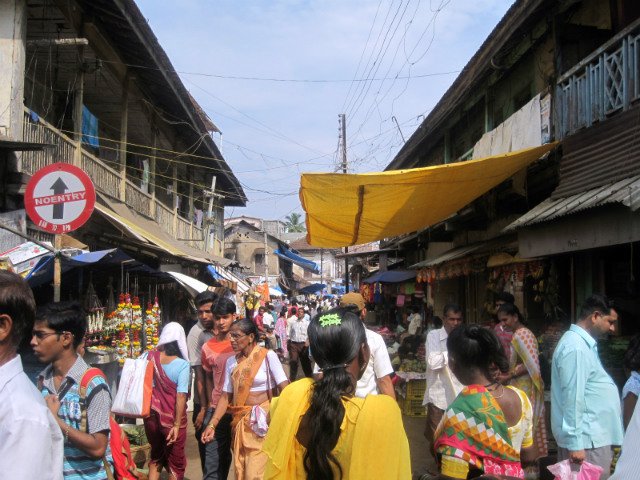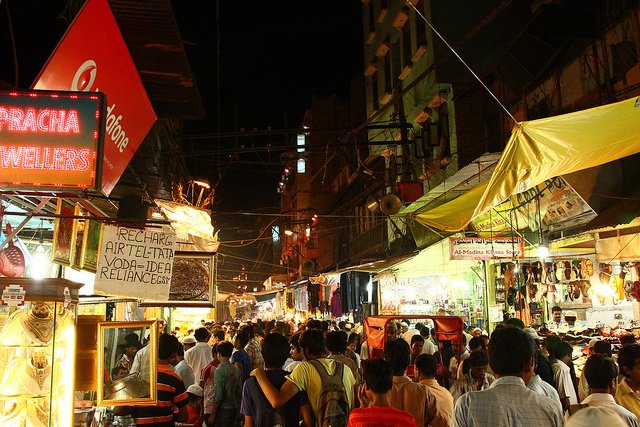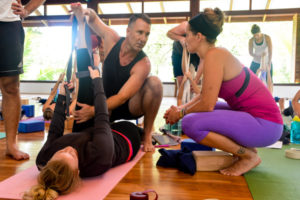Harsh sun pierced the delicate membrane of my retinas. Trickles of sweat poured down my back, along the sides of my temple, and into the folds of my dusty salwar.
Throngs of hawkers bellowed from their stalls, singing the praises of their products. “Brinjal! Fresh!” “Grapes!” Their eyes dart to me, eagerly seeking a potential sale with a firangi. Men in pressed shirts with small backpacks push by me.

Delicately beautiful women bursting in jewel toned saris stare, sometimes smile at me. Cows trudge alongside, methodical with laziness and power. They know their revered position and flaunt it.
Stray dogs with matted fur and a permanent itch run towards me, hankering for a pet or scrap of food. A child shyly touches my leg, awed by this alien woman in their sights. Instead of diving in, I want to shrink, be small and insignificant. With over a billion people and animals to engage with, why do I feel so overwhelmed, eager to hide in a hole, instead of sinking it all in?
We come here for salvation, grasping onto the image of our goodness, but realizing that Mother India turns us into something else. Flawed, human and delicate. I learned that the hard way after spending three months at an orphanage putting out psychological fires in damaged children.
As I make my way through a thick of people and find a narrow alley that throbs with market stalls and stop to buy lemons and chikoos, I am bogged down with bargaining instead of an easy purchase. With the dust and heat, my arm feels weak as I lift a wad of damp rupee bills and place them in the seller’s hand. Another struggle over, until I notice the elderly, stopped woman who I just handed money to is smiling at me – widely and warmly. My body sighs, soaking in the relief. For the moment, I can relax, hug India to my body, see it’s there for me. The seller bids me goodbye in Hindi and I say the same in return.
I suddenly remember those damaged children that I spent everyday with, walking them to school, teaching them the English alphabet, and how sometimes I could eek out a smile and a laugh. That even in the bosom of their horrible family histories, they could still feel the sunshine and just be children.
It turns out that India is not salvation, tragedy, or any one thing.
India mimics the rhythms of the ocean. At times, it’s benign, lapping gentle waves at your feet, tickling your toes. Then there are the trying moments, a violent storm that slams your body, jarring nerves to the brink when you drop any social veneer and gulp heaps of utter shock.
Like the ocean, we are fearful of its tremendous power, yet we still break into a run to be enveloped by an arcing wave, revelling in the roar and exhilaration without resistance. Treat India the same.
I walk back into the crowd and go without resistance. This is India, and for once, I don’t mind getting lost.
 About the Author
About the Author
Jeannie Mark left the corporate cubicle in 2010 and bought a one-way ticket to India, never looking back once.






